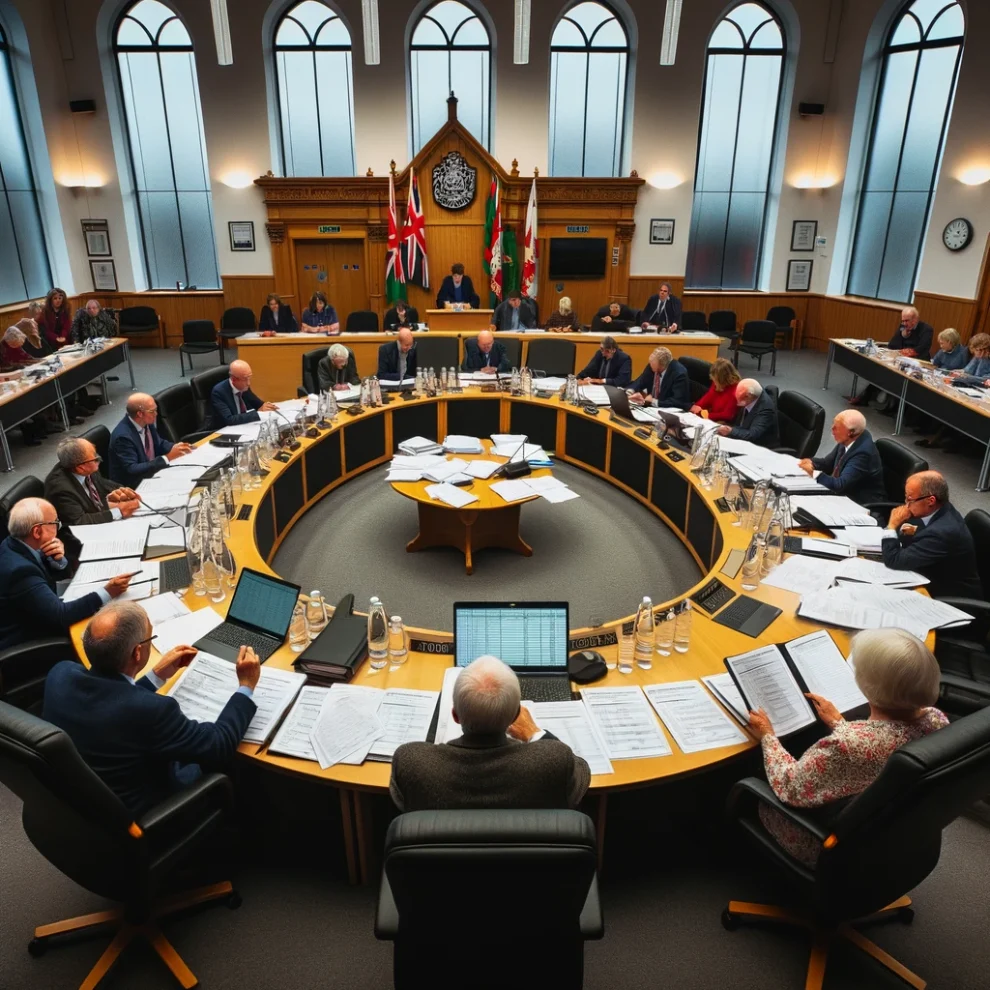RECENT media attention has been throwing a spotlight onto the financial concerns surrounding Carmarthenshire County Council’s expenditure, Unison has said. The union has pointed out that recent media stories has been highlighting the budget challenges faced by the Plaid-led Carmarthenshire County Council, as it anticipates allocations from the Welsh Labour Government. Furthermore, the Welsh Labour Government itself is yet to receive its budget allocations from the Conservative UK Government.
Across the UK, from Wales to England and Scotland, there’s a palpable sense of apprehension among councils about the impending budget settlement for the fiscal year. The consensus suggests that the forthcoming budget will struggle to maintain the status quo in terms of services.
During their governance, the Conservative Party has made clear its lack of advocacy for local governments, having introduced extensive cuts to both Welsh and Scottish government budgets. Some English councils have already resorted to issuing section 114 notices, declaring themselves fiscally insolvent. The fear is that Welsh councils will soon follow suit unless there’s a significant upturn in budget allocations.
While it’s no secret that the Conservative Party has been generous to its affluent supporters, often at the cost of local council jobs and services, the broader question remains: what is the Welsh Labour Government, and councils like Carmarthenshire, doing to counteract these cuts? Although Councillor Lenny highlighted in the latter article that Carmarthenshire is £120 million worse off in real terms than a dozen years ago, many are wondering if enough is being done to challenge these reductions.
Council Leader Daren Price recently stated, “if we value public services then we have to invest in them.” However, many believe that the council’s lack of proactive steps to defend its budget indicates an imminent wave of further cutbacks. For instance, the assertion that the number of primary schools is ‘unsustainable’ could have been avoided had council budgets remained consistent with 2010 levels. School closures impact pupils’ learning experiences, families, and local communities, even putting the promotion of the Welsh language at risk.
There are alternatives to slashing services and employment opportunities. The need of the hour is a solution that ensures fair wages and fosters positive mental well-being. Bob Crow, the late General Secretary of the RMT, once said, “If you fight you won’t always win, but if you don’t fight you will always lose.” The council now faces the choice: take a stance or risk going down in history as passive observers.
The severity of the current state of affairs calls for urgent, effective measures. It’s imperative for the council to prioritise the needs of the communities they serve. Adopting a needs-based budget approach, while utilising borrowing and reserves to establish a broad campaign backed by trade unions and local communities, can challenge and overturn these cuts. Only by doing so can we hope to revert to the council funding levels of 2010.
















